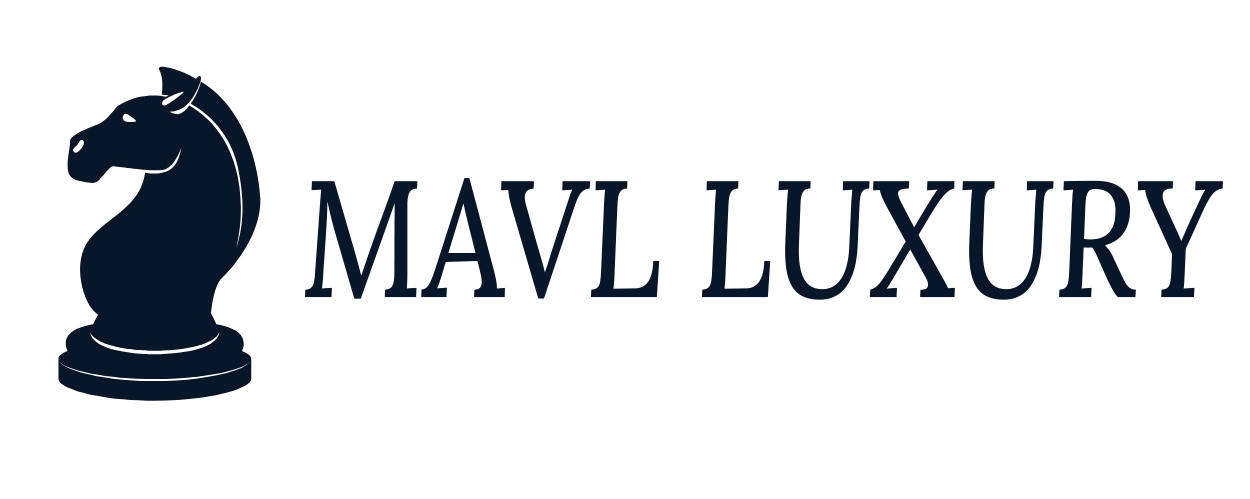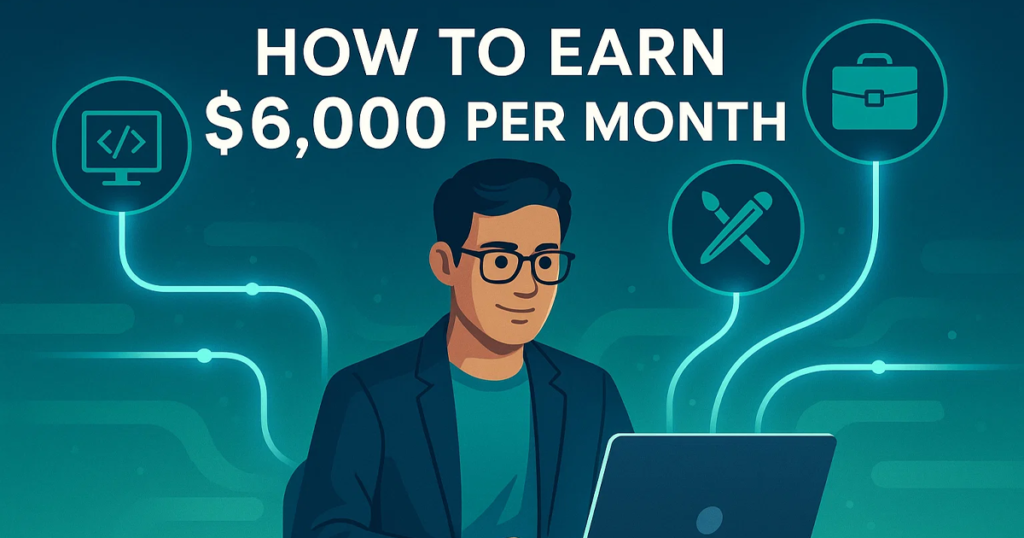Zero to Hero: How a 12-Week Digital Marketing Bootcamp Can Transform Your Career Path
In a world where digital transformation accelerates by the day, the demand for skilled digital marketers has never been higher. According to the U.S. Bureau of Labor Statistics, marketing jobs are projected to grow 10% through 2026, faster than the average for all occupations. Yet despite this explosive growth, companies are struggling to find qualified talent with up-to-date digital skills. The solution? Digital marketing bootcamps have emerged as career accelerators, transforming complete beginners into job-ready professionals in just 12 weeks.
As someone who has worked with hundreds of career-changers and witnessed their transformations firsthand, I’ve seen how these intensive learning experiences can catapult driven individuals into thriving careers. Whether you’re stuck in a dead-end job, looking to pivot industries, or simply fascinated by the possibilities in digital marketing, a well-structured bootcamp could be your express ticket to a new career trajectory.
The Digital Marketing Landscape in 2025
The digital marketing landscape of 2025 bears little resemblance to even five years ago. With artificial intelligence now embedded in most marketing platforms, the role of the digital marketer has evolved from tactical executor to strategic orchestrator. Today’s successful marketers must understand how to leverage automation while maintaining the creative and analytical thinking that machines still can’t replicate.
The most in-demand digital marketing skills now include:
- AI-Driven Marketing Strategy: Understanding how to craft prompts and workflows for AI tools like Jasper.ai and Copy.ai while maintaining brand voice
- First-Party Data Strategy: As cookie deprecation has finally happened, marketers who can build ethical first-party data collection and activation systems are commanding premium salaries
- Omnichannel Customer Journey Orchestration: Creating seamless experiences across platforms like TikTok, Instagram, and emerging metaverse environments
- Marketing Analytics Interpretation: Making sense of cross-platform data using tools like Google Analytics 4 and Tableau
- Conversion Rate Optimization: Using platforms like Optimizely to maximize ROI on existing traffic
These skills command impressive compensation. Entry-level digital marketing specialists now average $65,000-$75,000 annually, while those with just 2-3 years of specialized experience can easily command six figures, especially in e-commerce, SaaS, and fintech sectors.
Traditional four-year marketing degrees struggle to keep pace with this rapidly evolving landscape. By the time a university updates its curriculum, the industry has already moved forward. This explains why companies are increasingly valuing skills and portfolios over degrees, creating the perfect opening for bootcamp graduates to thrive.
Anatomy of an Effective Digital Marketing Bootcamp
Not all digital marketing bootcamps are created equal. The most transformative programs share several key characteristics that separate them from glorified online courses.
Comprehensive Curriculum
Top-tier bootcamps cover the entire digital marketing ecosystem while allowing for specialization. Essential components include:
- Search Engine Optimization (SEO): Technical audits, content optimization, link building strategies using tools like Ahrefs and Semrush
- Pay-Per-Click Advertising (PPC): Campaign structure, audience targeting, and optimization across Google Ads and social platforms
- Social Media Marketing: Organic strategy, paid amplification, and community management across major platforms
- Content Marketing: Content strategy, creation workflows, distribution channels, and measurement
- Email Marketing: List building, segmentation, automation, and deliverability using platforms like Mailchimp and Klaviyo
- Analytics & Data: Attribution modeling, KPI development, and actionable insights from Google Analytics, Adobe Analytics, and data visualization tools
- Conversion Rate Optimization: A/B testing, user experience analysis, and landing page optimization
Project-Based Learning
The most effective bootcamps are built around real-world projects rather than passive learning. Students might build a complete SEO strategy for a local business, run live PPC campaigns with actual budgets, or develop content calendars for real brands. This hands-on approach creates portfolio pieces that demonstrate practical skills to potential employers.
Industry Partnerships
Elite bootcamps maintain strong connections with employers who are actively hiring. These partnerships manifest as guest speakers, networking events, capstone project sponsors, and sometimes even hiring guarantees. Programs like General Assembly and BrainStation have developed robust employer networks that create direct pipelines from classroom to career.
Expert Instruction and Mentorship
The quality of instructors separates transformative bootcamps from mediocre ones. Look for programs taught by active industry practitioners rather than career educators. The best instructors bring current case studies, insider knowledge, and practical shortcuts that can’t be found in textbooks.
Equally important is structured mentorship. Many bootcamps pair students with experienced digital marketers who provide individualized feedback and guidance throughout the program and sometimes beyond graduation.
The Transformation Process – Week by Week
The magic of bootcamps lies in their condensed, immersive format. Here’s how the typical 12-week journey unfolds:
Weeks 1-3: Building the Foundation
The first three weeks focus on establishing core marketing concepts and essential digital skills:
- Digital marketing ecosystem overview and channel interconnections
- Audience research methodologies and buyer persona development
- Basic HTML, CSS, and digital analytics implementation
- Content creation fundamentals across text, image, and video
- Introduction to major platforms and their native analytics
This phase often feels like drinking from a firehose, but it builds the critical foundation for everything that follows. Students typically complete their first small projects during this period, such as creating a Google Analytics 4 implementation plan or conducting competitor analysis.
Weeks 4-6: Developing Specialized Skills
The middle weeks dive deeper into specific channels and methodologies:
- Advanced search marketing (both organic and paid)
- Social media campaign development and community management
- Email marketing automation sequences and journey mapping
- Data analysis and visualization using industry-standard tools
- A/B testing methodologies and statistical significance
During this phase, students begin identifying their areas of greatest interest and aptitude. Many bootcamps allow for some specialization while ensuring everyone maintains broad competency across all major channels.
Weeks 7-9: Campaign Planning and Execution
With foundational knowledge established, weeks 7-9 focus on pulling everything together into cohesive campaigns:
- Integrated marketing campaign development
- Budget allocation and ROI forecasting
- Project management using tools like Asana or Monday.com
- Presentation skills and stakeholder management
- Crisis management and reputation monitoring
This phase typically involves larger team projects that simulate agency-client relationships. Students might pitch comprehensive campaigns to real businesses or create full-funnel strategies for hypothetical product launches.
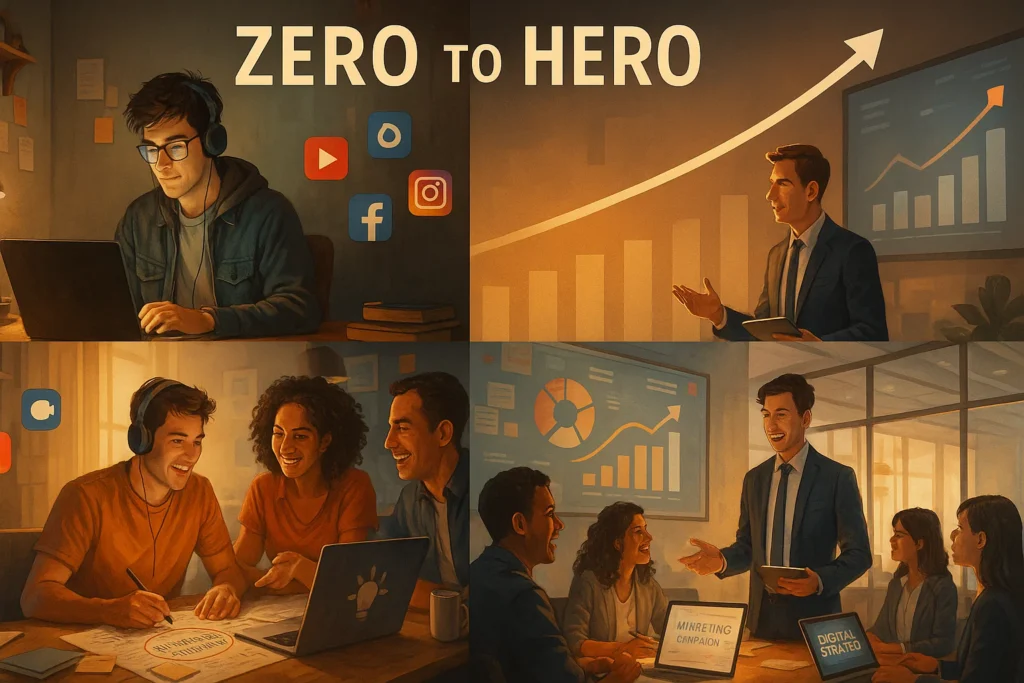
Weeks 10-12: Portfolio Building and Career Preparation
The final weeks are devoted to preparing for the job market:
- Personal branding and LinkedIn optimization
- Portfolio development and case study documentation
- Interview preparation and role-playing
- Freelance proposal writing and client acquisition strategies
- Networking tactics and industry event preparation
Many bootcamps culminate in a showcase event where students present their best work to potential employers. This creates a natural transition from student to professional and often leads to immediate job opportunities.
Success Stories and Case Studies
The true measure of any bootcamp is the success of its graduates. Consider these real-world transformations:
From Retail Manager to SEO Strategist
Jamie spent eight years in retail management, feeling increasingly trapped in a high-stress, low-growth position. After researching career options that would leverage her customer psychology insights and analytical thinking, she enrolled in a digital marketing bootcamp focusing on SEO and content strategy.
“The learning curve was incredibly steep,” Jamie recalls. “But having dedicated instructors and a cohort going through the same challenges created an incredible support system.”
Three months after graduation, Jamie landed a position as an SEO specialist at a mid-sized agency. Her starting salary represented a 35% increase from her retail management role, with significantly better work-life balance and remote work flexibility. Two years later, she now leads the organic search department and has doubled her pre-bootcamp income.
From Schoolteacher to Social Media Director
Michael taught high school English for twelve years before burnout and budget cuts prompted his career change. His classroom presentation skills and content creation experience translated perfectly to digital marketing, particularly in social media marketing.
“Teaching gave me incredible transferable skills—explaining complex concepts simply, managing multiple priorities, and understanding different learning styles,” Michael explains. “The bootcamp helped me reframe these abilities in marketing language and filled my technical gaps.”
Through his bootcamp’s employer showcase, Michael connected with a startup needing someone to build their social presence from scratch. What began as a three-month contract evolved into a full-time role as Social Media Director, where he now leads a team of four and manages budgets exceeding $500,000 annually.
From Recent Graduate to E-commerce Specialist
Unlike career-changers, Sophia entered her digital marketing bootcamp immediately after completing a liberal arts degree. With minimal work experience and a non-technical background, she worried about her job prospects.
“The bootcamp’s focus on portfolio-building was my salvation,” Sophia shares. “Instead of just talking about what I could do, I could show actual campaigns I’d run and results I’d achieved.”
The capstone project, where she created and executed a holiday marketing campaign for a local jewelry business, became her ticket to employment. The e-commerce brand that hired her was impressed by her hands-on experience with Shopify and Facebook Ads Manager. Within 18 months, Sophia had moved into a specialized role focusing on retention marketing and customer journey optimization.
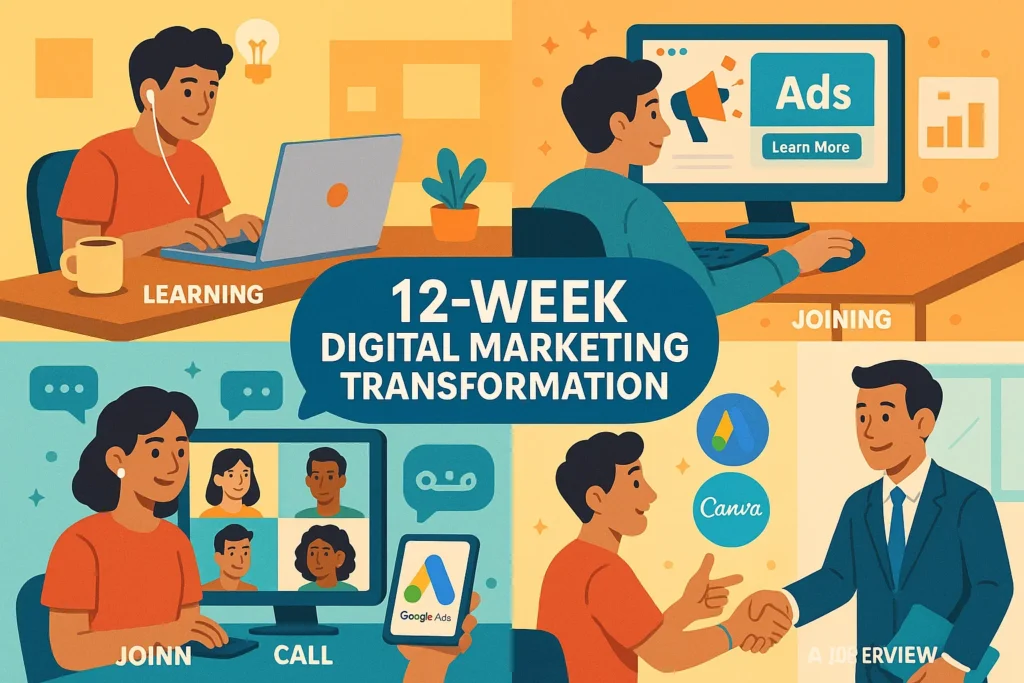
How to Choose the Right Bootcamp for You
With dozens of programs claiming to transform your career, choosing the right bootcamp requires careful consideration:
In-Person vs. Virtual Learning
The pandemic accelerated the shift toward virtual bootcamps, which now dominate the market. Virtual programs offer flexibility and often cost less, but may require more self-discipline. In-person bootcamps typically provide more immediate feedback and stronger community bonds but demand geographical commitment and often carry higher price tags.
Top virtual programs like Springboard and Thinkful have developed sophisticated remote learning methodologies that rival in-person experiences through a combination of synchronous instruction, peer collaboration tools, and structured mentorship.
Curriculum Relevance and Industry Connections
Evaluate the curriculum against current job postings in your target role. Does the bootcamp teach the specific platforms and methodologies employers are requesting? Be wary of programs focusing heavily on outdated tactics or platforms with declining relevance.
Equally important are industry connections. Research where graduates are working and whether the bootcamp brings in guest speakers from desirable companies. The strongest programs maintain advisory boards with active industry professionals who ensure curriculum remains cutting-edge.
Cost Considerations and ROI
Digital marketing bootcamps typically range from $8,000 to $15,000, representing a significant investment. However, compared to traditional degrees costing $40,000+, they offer compelling ROI for career-changers.
Most bootcamps now offer flexible payment options, including:
- Income Share Agreements (ISAs), where you pay a percentage of your future income
- Installment plans with 0% interest
- Scholarships for underrepresented groups in tech
- Employer sponsorship programs
Calculate your expected post-bootcamp salary increase to determine whether the investment makes financial sense. For most career-changers, the breakeven point comes within 12-18 months.
Red Flags to Watch For
Be cautious of bootcamps displaying these warning signs:
- Instructors without current industry experience
- Outdated curriculum mentioning obsolete platforms
- Vague job placement statistics
- Poor reviews on sites like Course Report or SwitchUp
- Limited portfolio building opportunities
- No mentorship component
Maximizing Your Bootcamp Investment
Once you’ve chosen and enrolled in a bootcamp, these strategies will help you extract maximum value:
Pre-Bootcamp Preparation
Don’t wait until day one to begin learning. Most bootcamps provide pre-work, but ambitious students should go further:
- Complete free certifications from Google Digital Garage
- Familiarize yourself with key platforms through free trials
- Join digital marketing communities on Reddit and Slack
- Start following influential marketers on LinkedIn and Twitter
- Build basic spreadsheet skills, as data analysis is central to modern marketing
Network Aggressively
The connections you make during your bootcamp can be as valuable as the skills you learn:
- Connect with every guest speaker on LinkedIn with personalized messages
- Schedule virtual coffee chats with alumni working at your target companies
- Participate actively in group projects to build your reputation
- Consider creating content about your learning journey on LinkedIn
Build a Standout Portfolio
Your portfolio will be the primary tool for demonstrating your capabilities to employers:
- Go beyond basic bootcamp assignments by adding custom analyses
- Document your thinking process, not just final deliverables
- Include metrics and results whenever possible
- Create case studies following the Problem-Approach-Solution-Results format
- Consider building a personal website using Wix or WordPress to showcase your work
Strategic Job Search Approach
Approach your job search with the same strategic thinking you’d apply to a marketing campaign:
- Create different resume versions targeting specific roles
- Develop a compelling personal brand narrative
- Set up automated job alerts on LinkedIn and Indeed
- Target companies, not just open positions
- Consider starting with freelance projects through platforms like Upwork to build experience
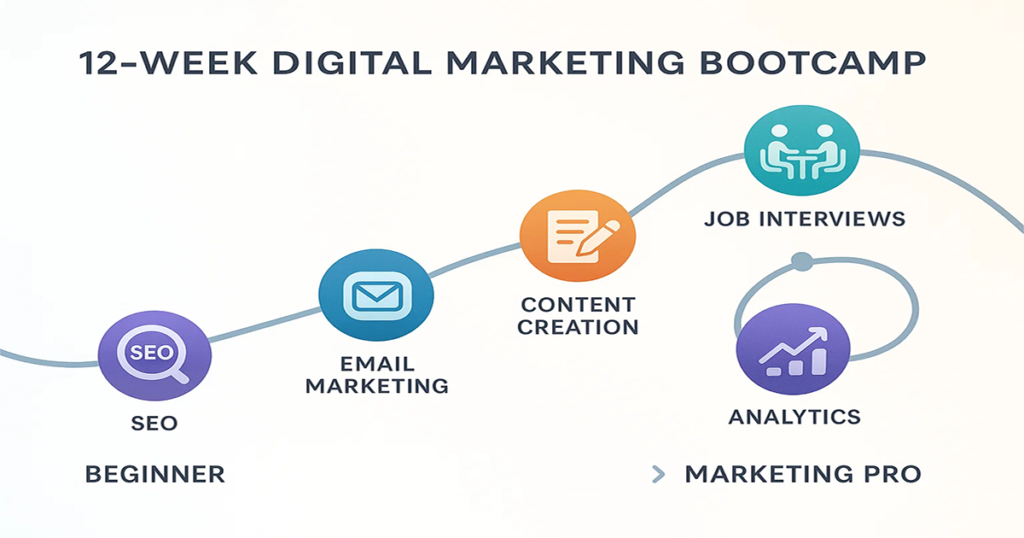
Conclusion
The 12-week transformation from digital marketing novice to industry professional isn’t magic—it’s the result of immersive learning, strategic skill development, and portfolio building within a compressed timeframe. For those willing to fully commit to the process, a quality bootcamp offers one of the fastest and most reliable paths to career reinvention in today’s digital economy.
The digital skills gap continues to widen as technology evolves at an accelerating pace. This creates unprecedented opportunity for those willing to invest in themselves through intensive education models like bootcamps. Whether you’re seeking higher compensation, greater flexibility, or simply more fulfilling work, digital marketing offers accessible entry points and clear advancement pathways.
As you consider your next career move, remember that the most successful bootcamp graduates approach the experience with clarity of purpose, total commitment, and a growth mindset. The 12-week journey is demanding, but those who embrace the challenge often look back on it as the inflection point that forever changed their professional trajectory.
Are you ready to transform from zero to hero in just 12 weeks? Your new digital marketing career awaits.
This article was brought to you by Mavlluxury. Visit our blog for more insights on career development, digital marketing trends, and professional growth strategies.
